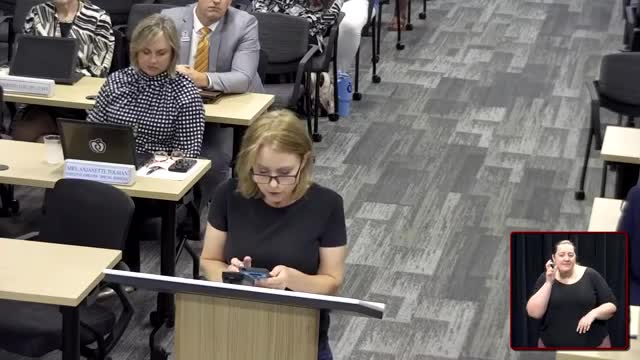Education Crisis Exposed as Standards Plummet
October 04, 2024 | Olathe, School Boards, Kansas
This article was created by AI summarizing key points discussed. AI makes mistakes, so for full details and context, please refer to the video of the full meeting. Please report any errors so we can fix them. Report an error »

In a recent government meeting, concerns were raised regarding the state of public education and the effectiveness of current policies. Critics argued that decisions made by school boards are undermining educational standards, leading to a decline in student and teacher attendance. Questions were posed about the authenticity of claims supporting public education, suggesting that the reality of classroom experiences contradicts these assertions.
One significant point of contention was the curriculum, particularly the reading materials assigned in honors classes. Critics highlighted that many of these books are written at lower reading levels and contain inappropriate content, which they argue detracts from students' academic growth. They expressed concern that such materials may promote ideological agendas rather than foster genuine learning.
Data presented during the meeting indicated a troubling trend: despite increased funding for public schools, academic achievement has declined. Specifically, ACT scores in the district have fallen over the past nine years, raising alarms about the effectiveness of financial investments in education. The upcoming changes to testing requirements, including making science optional, were also criticized for potentially lowering academic expectations.
Additionally, the meeting addressed the disparity in compensation within the education system. Participants pointed out that while administrative salaries have seen significant increases, many teachers feel undervalued and disrespected. This inequity in pay was cited as a contributing factor to low morale among educators.
Overall, the discussions underscored a growing frustration with the current direction of public education, calling for a reevaluation of policies and practices to better align with the stated goals of improving educational outcomes for all students.
One significant point of contention was the curriculum, particularly the reading materials assigned in honors classes. Critics highlighted that many of these books are written at lower reading levels and contain inappropriate content, which they argue detracts from students' academic growth. They expressed concern that such materials may promote ideological agendas rather than foster genuine learning.
Data presented during the meeting indicated a troubling trend: despite increased funding for public schools, academic achievement has declined. Specifically, ACT scores in the district have fallen over the past nine years, raising alarms about the effectiveness of financial investments in education. The upcoming changes to testing requirements, including making science optional, were also criticized for potentially lowering academic expectations.
Additionally, the meeting addressed the disparity in compensation within the education system. Participants pointed out that while administrative salaries have seen significant increases, many teachers feel undervalued and disrespected. This inequity in pay was cited as a contributing factor to low morale among educators.
Overall, the discussions underscored a growing frustration with the current direction of public education, calling for a reevaluation of policies and practices to better align with the stated goals of improving educational outcomes for all students.
View full meeting
This article is based on a recent meeting—watch the full video and explore the complete transcript for deeper insights into the discussion.
View full meeting
